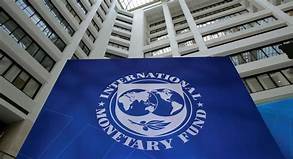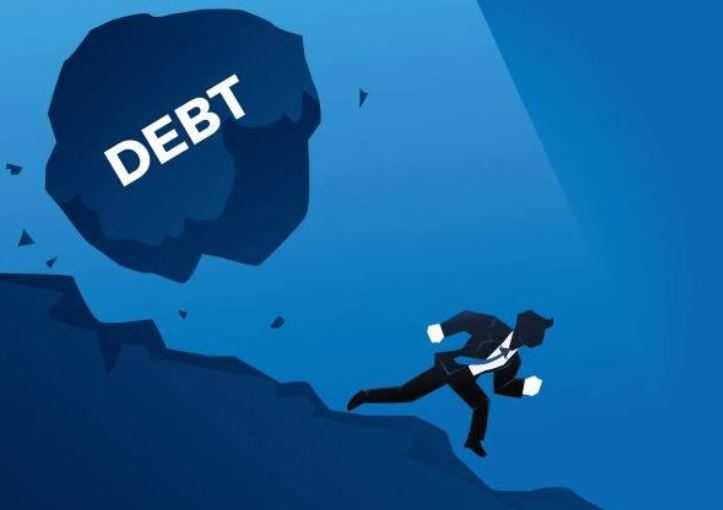- Abu Dhabi radiates optimism as over 300 startups join AIM Congress 2024
- TLcom Capital Raises $154 million in Funding to Boost Its African Growth
- Africa’s $824Bn debt, resource-backed opaque loans slowing growth — AfDB
- LB Investment brings $1.2 trillion portfolio display to AIM Congress spotlight
- AmCham Summit kicks off, setting course for robust future of US-East Africa trade ties
- Why the UN is raising the red flag on the UK-Rwanda asylum treaty
- Portugal’s Galp Energia projects 10 billion barrels in Namibia’s new oil find
- Wärtsilä Energy offers tips on how Africa can navigate energy transition and grid reliability
Browsing: debt
The International Monetary Fund (IMF) which has so far lent about $491.5 million to Uganda said that it is a misconception to assume that Uganda’s debt is unsustainable.
Uganda’s public debt levels are within a manageable threshold in the long term, noted Izabela Karpowicz the IMF Resident Representative for Uganda.
“We used to rate Uganda at low risk and now it will be moving to medium risk and this is due to Covid-19. It is not correct to say the debt is not sustainable over the medium and long term.” Ms Karpowicz said on the sidelines of a policy dialogue on Uganda’s economy, which was organised by the Civil Society Budget Advocacy Group (CSBAG) and the Advocates Coalition for Development and Environment (ACODE).
She noted that how resources that are being borrowed now and in the future will be deployed productively should be what Ugandans should be worried about and …
Looks like Kenya is in for a tough run in the coming financial year or maybe even for a longer span. Kenya needs to borrow to meet its budgetary needs. The International Monetary Fund (IMF) is willing to lend but wants structural and governance reforms for Kenyan state-owned enterprises. How did Kenya get into this tough spot? Officials blame it on Covid-19 and the global slowed-down economy that resulted from the pandemic. Granted, economies took a hit from the pandemic but despite that fact in mind, reason still begs to understand what of the IMF loans that were issued specifically to help countries muzzle down the negative effects of the pandemic?
Notably, at the onset of the pandemic in March 2020, Kenya received a whopping $739 million loan from the IMF. The money was specifically meant to help cushion the Kenyan economy from the adverse effects of the Covid-19 pandemic. …
State power utility Eskom reported a loss amounting to ZAR 20.5 billion ($1.2bil) for the financial year 2020. The power producers generated revenue to the tune of R200billion($12.3bil) which failed to match up to the previous year’s revenue by 1.29%. The poor results were attributed to challenges in capacity and untenable economic climate.
The major contributing factor to the huge loss position can be traced to finance costs which came up at ZAR 31.3billion ($1.9bil). The costs in question were related to servicing a debt of ZAR 483 billion($25bil) which the company is struggling to reduce.
The heavy debt position for Eskom is particularly distressing for South Africa as the South African government is the largest guarantor for Eskom’s debt. Eskom has also been a recipient of government bailout funding set at ZAR138 billion($8.4bil) until 2022. This heavily places a burden on the country’s budget and is a significant threat …
When something grows by 50 percent, we say it has doubled, when it grows by 100 percent, it has quadrupled and so on and so forth. You want to know by how much telecommunication companies in Rwanda have grown during the onslaught of the coronavirus? I will tell you, an amazing 450 percent.
According to the Rwanda Utilities Regulation Authority, between January and April alone, telecom companies in Rwanda have amassed over USD 42 million that is an average of USD 10 million a month.
This impressive performance is representative of a drastic paradigm shift, the migration from a pre-dominantly cash based society to one that has gone almost absolutely cashless. Rwanda has in the fight against the spread of coronavirus gone cashless, switching from use of cash payments to digital platforms via mobile money transfers.
Last month, The Exchange published an article titled Digital Africa in which it was …
A three-day regional conference on debt management in sub-Saharan African convened in Uganda this week is expected to conclude into signing a paper to be presented at several forums.
The forums will include the next World Bank spring meeting to highlight governments’ discomfort with some conditions tied to loans.
Uganda’s Ministry of Finance acting director for debt and cash policy management, Maris Wanyera, said the conference will be attended by delegates from 16 countries, under the theme “sustainable public debt management and a strengthened economic growth”
She also said that in light of the ongoing borrowing frenzy by African countries to finance their development agenda, the conference is long overdue.
“The idea is to come up with a strategy; a voice we can use while negotiating some of these loans. Debt [borrowing] is not bad at all, as long as we borrow for the right purposes and negotiate well, but …









